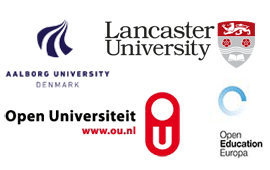

Online conversations around digital artefacts: the studio approach to learning in STEM subjects
Elaine Thomas. Leonor Barroca, Helen Donelan, Karen Kear, Helen Jefferis, Jon Rosewell, Department of Computing and Communications, The Open University (UK)
Studio-based learning provides a model that can be adapted for online learning. In conventional teaching settings, studio-based learning follows an apprenticeship model where students work independently or in groups, under the guidance of a tutor, using real-world activities. The ‘Using OpenStudio in STEM learning’ project has been established to evaluate the use of online studio-based learning in the Open University (UK). This paper reports our findings from the first two phases of the project which gathered data from educators who present the modules and also from a survey of students. Educators representing distance learning modules from a range of STEM disciplines including Computing and IT, Design, Engineering and Environmental Technology participated in a workshop to share information about the use of OpenStudio on their modules. A simple model of OpenStudio activities was derived from the workshop to illustrate the process of 'showing and sharing', viewing and reviewing', commenting and critiquing', and 'reviewing and reflecting' involved. Two Computing and IT undergraduate modules were then selected for more detailed analysis, one at level 1 (first year) and another at level 3 (third year). Both quantitative and qualitative data were gathered from samples of students on these modules and analysed. Comparisons between the OpenStudio model, the survey findings and Kolb’s Experiential Learning model (1984) revealed the range of student views and the diversity of students’ experiences of the learning activities, and provided some thought-provoking insights into student behaviour in carrying out the OpenStudio activities.
The data suggest that students enjoy the OpenStudio activities, especially the visual nature of artefacts and the idea that shorter comments may be made, rather than longer more discursive pieces of writing. In addition to learning about their subject area, students are also learning how to give feedback to their peers and how to use the feedback they receive, both of which are important skills. Many students are confident in their own ability and are able to evaluate the feedback they receive. However, some students may lack confidence in their own ability to give feedback on the work of their peers, particularly at level 1. Importantly, there needs to be an opportunity to complete the cycle of the experiential learning model in the activity by allowing students to produce another artefact. The experiential nature of the online studio activity presents an opportunity for students to reflect-in-action as well as reflect on their actions (Schön, 1983).
Keywords
studio-based learning, peer feedback, collaborative learning, social learning, online learning, Science, Technology, Engineering, and Mathematics (STEM)
Joint Organising Institutions
| Conference Travel and Accommodation |Doctoral Consortium | Past Conference Proceedings | Contact |